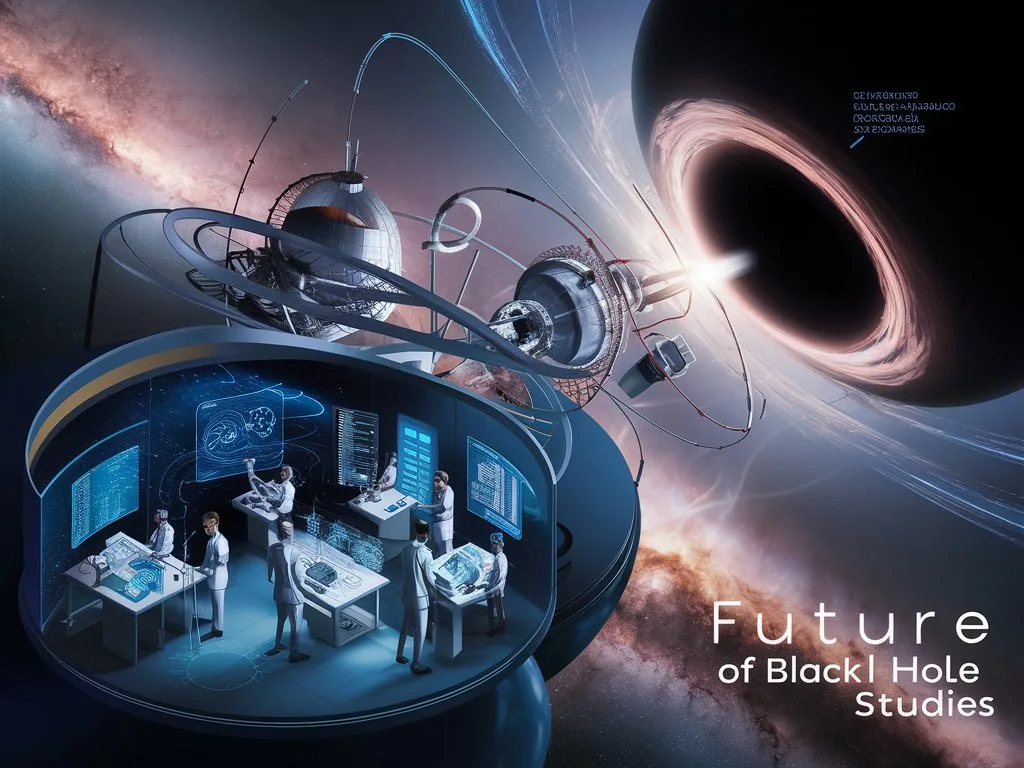Introduction
When we think of the universe, there are few entities more captivating than black holes. These enigmatic cosmic phenomena have puzzled astronomers and enthusiasts alike for centuries, with their immense gravitational pull and mysterious behavior. Today, we embark on an adventurous journey to unravel the astonishing mysteries of black holes.
What is a Black Hole?
Imagine a region in space where gravity is so powerful that nothing, not even light, can escape its clutches. This is the essence of a black hole, a celestial object formed when a massive star collapses in on itself. The result is a point of infinite density known as a singularity, surrounded by an event horizon beyond which not even information can escape.

Brief History of Black Hole Discovery
The concept of black holes dates back to the 18th century, but it wasn’t until the 20th century that their existence was firmly established through theoretical calculations and observational evidence. The pioneering work of scientists like Albert Einstein and Karl Schwarzschild paved the way for our understanding of these cosmic enigmas.
Importance of Studying Black Holes
Studying black holes is not just an academic pursuit; it has real-world implications for our understanding of the universe. From the formation of galaxies to the nature of spacetime itself, black holes play a critical role in shaping the cosmic landscape.
Types of Black Holes
Supermassive Black Holes
At the heart of most galaxies lies a supermassive black hole, with masses millions or even billions of times that of our sun. These behemoths exert a powerful gravitational pull, influencing the motion of stars and even the structure of entire galaxies.

Intermediate Black Holes
Intermediate black holes bridge the gap between stellar and supermassive black holes, offering valuable insights into the formation and evolution of these cosmic entities. Their existence raises intriguing questions about the processes that lead to the creation of black holes.

Micro Black Holes
Theoretical models suggest the existence of micro black holes, minuscule in size but potentially packing a significant gravitational punch. These microscopic marvels challenge our understanding of the fundamental forces of nature and the limits of our knowledge.
Gravitational Pull and Accretion Disk Dynamics
One of the most striking aspects of black holes is their gravitational pull, which distorts spacetime and traps anything that ventures too close. The concept of an event horizon, beyond which escape is impossible, highlights the extreme nature of these cosmic phenomena. As matter spirals into a black hole, it forms an accretion disk that emits powerful radiation across the electromagnetic spectrum. Understanding the dynamics of these disks is crucial for deciphering the feeding habits of black holes and their impact on surrounding space.
Hawking Radiation and Stellar Black Holes
In a groundbreaking discovery, physicist Stephen Hawking proposed that black holes emit radiation due to quantum effects near the event horizon. This Hawking radiation offers a glimpse into the quantum realm and challenges our understanding of black hole thermodynamics. Formed from the remnants of massive stars that have undergone supernova explosions, stellar black holes are relatively common in the universe. Their existence sheds light on the fate of massive stars and the processes leading to black hole formation.
Primordial and Intermediate Mass Black Holes
Theoretical models suggest the existence of primordial black holes, born in the early universe from density fluctuations. These ancient relics hold the key to understanding the conditions that prevailed during the cosmic dawn and offer a window into the earliest stages of black hole formation. Intermediate mass black holes occupy a unique niche in the black hole hierarchy, with masses larger than stellar black holes but smaller than supermassive ones. Their properties provide valuable clues about the evolution of black holes in different cosmic environments.

The Information Paradox and Potential Solutions
The information paradox posits that information swallowed by a black hole is irretrievably lost, violating fundamental principles of quantum mechanics. This conundrum challenges our understanding of the nature of black holes and the fate of information in extreme gravitational environments. Proposed solutions to the information paradox range from exotic scenarios involving multiple universes to new principles of quantum gravity. Each potential resolution raises profound questions about the nature of spacetime, information, and the fundamental laws governing the cosmos.
Role in Galaxy Formation and Relation to Dark Matter
Black holes play a crucial role in the formation and evolution of galaxies, influencing the dynamics of stellar populations and the distribution of matter. The connection between black holes and dark matter remains a tantalizing mystery, with potential implications for our understanding of the invisible mass that pervades the universe. Exploring the links between these enigmatic entities could reveal new facets of cosmic structure and evolution.

Black Holes and the Cosmic Web
Black holes are not isolated entities but integral components of the cosmic web, the vast network of filaments that connect galaxies across the universe. Understanding the role of black holes in this intricate web could illuminate the underlying structure of the cosmos.
Spin, Rotation, and Merging Black Holes
The spin and rotation of black holes influence their behavior and interactions with the surrounding environment. By studying the spin of black holes, scientists can glean insights into their formation history and evolutionary pathways. When black holes collide and merge, they create ripples in spacetime known as gravitational waves. These cosmic cataclysms provide a unique opportunity to study the properties of black holes and test the predictions of general relativity.

Future of Black Hole Studies
As technology advances and observational techniques improve, the future of black hole studies looks brighter than ever. From groundbreaking discoveries to paradigm-shifting theories, the next frontier of black hole research promises to unveil even more astonishing mysteries of the cosmos.
Conclusion
In conclusion, the secrets of black holes continue to captivate and inspire us, offering a glimpse into the fundamental nature of the universe. By delving into the mysteries of these cosmic behemoths, we uncover profound insights into the fabric of reality and our place within the cosmic tapestry. So, venture forth into the abyss of space and time, where black holes reign supreme, and mysteries abound. The journey may be perilous, but the rewards of discovery are unparalleled. Embrace the adventure and unravel the astonishing mysteries of black holes, for the universe awaits your bold exploration.

Thanks for sharing. I read many of your blog posts, cool, your blog is very good.
Thank you for your sharing. I am worried that I lack creative ideas. It is your article that makes me full of hope. Thank you. But, I have a question, can you help me?
Thank you for your sharing. I am worried that I lack creative ideas. It is your article that makes me full of hope. Thank you. But, I have a question, can you help me?
Can you be more specific about the content of your article? After reading it, I still have some doubts. Hope you can help me.